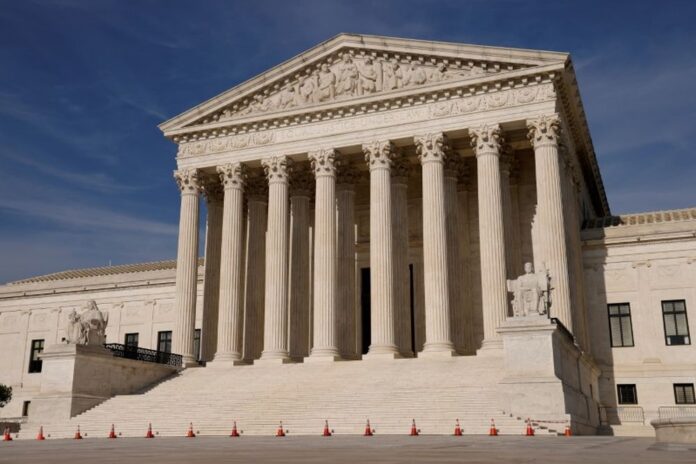The US Supreme Court building in Washington, US, May 17, 2021. — Reuters pic
WASHINGTON, Oct 7 — Supreme Court justices on Wednesday questioned the US government’s refusal to confirm the CIA tortured an alleged Al-Qaeda detainee in Poland, despite sweeping public information that made the government stance “farcical,” as one justice called it.
They also questioned why the detainee, Saudi-born Palestinian Abu Zubaydah, remains held incommunicado in the US military “War on Terror” prison in Guantanamo Bay, Cuba, never having been charged after nearly two decades in US custody.
In a case focused on “state secrets,” Abu Zubaydah, 50, wants the US high court to force two psychologists who ran the CIA’s brutal interrogations of suspects after the September 11, 2001 attacks to testify in his case against Poland, where he was held in 2002-2003 as an alleged high-level Al-Qaeda official involved in the attacks.
A 2014 US Senate report and statements by Polish officials have documented the torture and the location.
Abu Zubaydah’s lawyer, David Klein, wants the two psychologists, both former contractors to the CIA, to confirm the details of his treatment, including the location.
But the CIA and the US Justice Department argued that “state secrets privilege” allows them to block the testimony, to protect national security-related information including Poland’s cooperation with the CIA.
US intelligence partners will see the testimony by the two “as a serious breach of trust,” making it harder to get more cooperation in the future, argued government attorney Brian Fletcher.
But justices asked what the harm was, since the information was already public and hardly a state secret, even if the CIA refuses to confirm it.
Moreover, the two psychologists, James Mitchell and Bruce Jessen, have already testified on aspects of the interrogation program in two other venues, including a Guantanamo case.
“At a certain point it becomes a little farcical,” said Justice Elena Kagan of the claim of state secrets privilege.
“If everybody knows what this secret is, I guess we should rename it,” she said.
At the same time, justices asked Klein why he needs the testimony if what happened is no longer secret.
“We’re looking for eyewitness testimony… I want to shine a light inside it,” he said of the torture program.
Abu Zubaydah, whose full name is Zayn Al-Abidin Muhammad Husayn, was the first of a number of detainees to be subjected to CIA “enhanced interrogation” in the wake of 9/11.
He was water-boarded 83 times, according to the Senate report, and suffered other physical abuse.
He was sent to Guantanamo in 2006 and never charged. The Senate report said the CIA conceded he was never a member of Al-Qaeda and not involved in planning the 9/11 attacks.
US courts have rebuffed his habeas corpus petitions since then, and the US military justice system has refused to release him, so in 2010 he sued in Poland to hold the government there responsible for his treatment.
Justice Neil Gorsuch questioned why Abu Zubaydah cannot testify himself to his treatment, which is blocked by Guantanamo regulations.
“What is the government’s objection to the witness testifying on his own treatment, and not requiring any admission from the government of any kind?” Gorsuch said.
“I don’t understand why he’s still there after 14 years,” added Justice Stephen Breyer.
Alka Pradhan, an attorney for another Guantanamo detainee, said that the psychologists’ testimony is necessary.
The suggestion that Abu Zubaydah testify instead “shows a lack of understanding about torture effects,” she wrote on Twitter.
“As the torture victim, AZ’s memory cannot be relied upon in lieu of other testimony/accurate reports,” she said. — AFP


